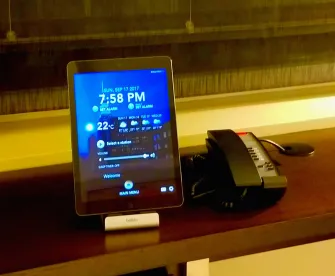Well, as the saying goes, the TCPA giveth and it taketh away.
It has been over a year since ACA Int’l was handed down and yet–almost unbelievably– the seesaw battle over the TCPA’s ATDS definition continues full steam. And just when it seemed like the battle over the viability of the FCC’s old predictive dialer rulings might finally be over, a new district court ruling suggests that those rulings might remain viable after all.
Despite the recent avalanche of decisions holding that the D.C. Circuit Court of Appeal set aside the FCC’s 2003 and 2008 Predictive Dialer rulings in ACA Int’l, the Southern District of New York bucked that trend yesterday and held that dialers operating predictively remain subject to the TCPA.
In Jiminez v. Credit One Bank, N.A., No. 17 CV 2844-LTS-JLC, 2019 U.S. Dist. LEXIS 53096 (S.D.N.Y. March 28, 2019) the Court held the the FCC’s 2003 declaratory ruling sweeping predictive dialers within the TCPA’s ATDS definition remains binding. In reaching that conclusion the Court rejected Pinkus and other authority to the effect that ACA Int’l had necessarily invalidated those earlier rulings. In the Jiminez’ court’s view:
The Court has reviewed the relevant authorities and is not persuaded that ACA International invalidated the FCC’s prior rulings on the definition of an ATDS.
Eesh.
The Court finds that a “predictive dialer” subject to the TCPA is one “that uses a complex set of algorithms to automatically dial consumers’ telephone numbers in a manner that ‘predicts’ the time when a consumer will answer the phone and a telemarketer will be available to take the call.” Jiminez at *19.
Turning to the evidence, the Court had little problem finding that the dialer before it was a predictive dialer. As the Court describes matters: “[the] dialing system uses a proprietary algorithm to determine how many calls to automatically place in order to keep customer service representatives fully occupied at all times and that Quick Connect adjusts the number of calls that are automatically placed based on the number of available customer service representatives at any given time.” Jiminez at * 18-19. In other words, the Court looked to the system’s capacity to determine the pacing and timing of the calls being made in order to determine that the system operated “predictively”– which is consistent with the approach adopted by the Eastern District of New York in a TCPA case involving text messages just last month.
On the theme of the TCPA giving and then taking away– there’s a second piece to this case that is absolutely delicious, in an unfortunate sort of way. Imagine being afforded a complete defense in one TCPA wrong number class action, only to be rejected that same defense in a seemingly identical case in a different courthouse. Well, that’s Credit One Bank’s (TCPA) world right now.
Credit One had successfully litigated the issue of a “reasonable reliance” defense in the recycled number context in Roark v. Credit One Bank, N.A., No. 16-173 (PAM/ECW), 2018 U.S. Dist. LEXIS 193252 (D. Minn. Nov. 13, 2018)– the first court in the country to (correctly) recognize that ACA Int’l’s holding necessarily affords callers the right to rely on a previous subscriber’s consent. But that same “reasonable reliance” defense–or at least a very similar one–was rejected in Jiminez.
As the Jiminez court tees up the argument, Credit One argued that just as a caller can “reasonably rely” on the consent provided by the regular user of a cell phone it ought to be able to “reasonably rely” on the consent of a former susbcriber to a cell phone in a recycled number setting. Notice that this is a bit of a Frankenstein’s monster version of the argument advanced in Roark–there the Court recognized that the FCC’s one call safe harbor was predicated on the concept that a caller can rely on a former subscriber’s consent– but the “reasonable reliance” argument in Jiminez ties to the FCC’s “called party” formulation. (Weird that Credit One would advance a different version of an argument that was successful previously, but who am I to judge.) The Jiminez court had little problem rejecting the new “reasonable reliance” argument as unpermitted by the statute, without addressing Roark or ACA Int’l at all. So the entire analysis is pretty unsatisfying, in my opinion.
At bottom, with Singer decided last week and now Jiminez following quickly on its heels, Defendants have good reason to be even more wary of the TCPA than before. Both Singer and Jiminez read the TCPA’s ATDS definition broadly– applying to all automated calls and all predictively dialed calls, respectively. And both reject important defenses– the Reyes bar to revocation cases in Singer and a “reasonable reliance” defense to wrong number in Jiminez.
Great. Now my weekend is ruined.




 />i
/>i
